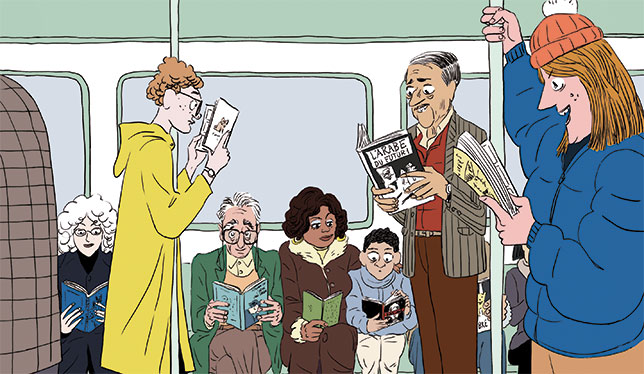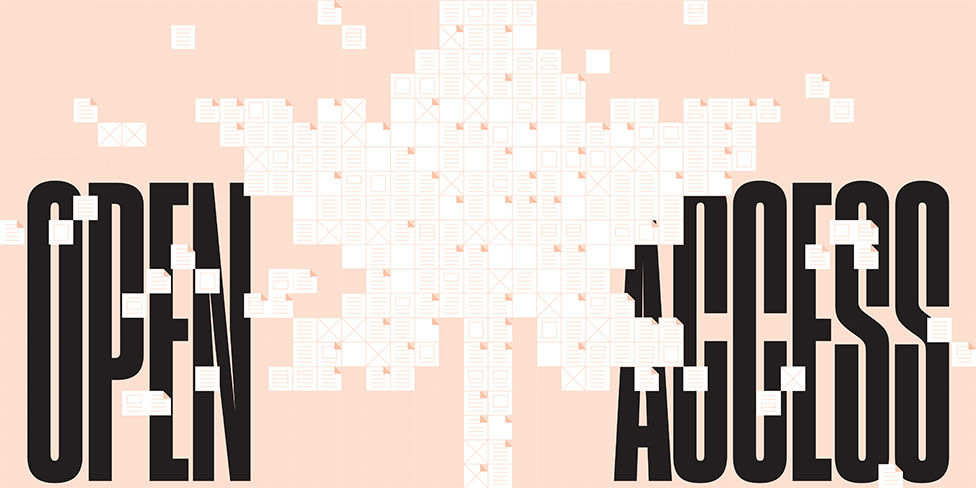We need to relearn how to play nice in peer review
By changing the way we discuss scholarly work, we will not only improve scholarship but also reduce the unnecessary hostility rampant in academia.

Academia has emerged as an unassuming minefield of mental health hazards. Examples from the scholarly and lay literatures detail rampant depression, anxiety and panic symptoms among academics, especially graduate students. A recent study of over 3,000 PhD students in Belgium revealed that 32 percent were at risk of having or developing a psychiatric disorder. It was also found that compared to a highly educated general population, PhD students had 3.5 times the risk of lost self-confidence and 3.4 times the risk of feeling worthless. Family-work conflicts and a culture of closed decision-making were among the strongest independent predictors of psychiatric distress among participants.
A recent example from the news media described “the silencing effect of academia” and the “need to be thick-skinned” to progress successfully as an academic. Despite the concerning severity and omnipresence of anxiety experienced by the author and the author’s peers, a culture of silence reigned. Nature also published a series of testimonials written by doctoral students and researchers describing their experiences with mental health and suggestions to drive culture change. Establishing support systems, broadening career prospects, and accessing professional mental health services, were among the many suggestions to remain resilient in a viciously competitive, and at times, distressingly lonely work environment. As a PhD student in epidemiology, my lay review of these articles forced me to consider my own journey as a researcher and graduate student in public health.
Like most graduate students, I suffer from imposter syndrome. As such, I obsess about the quality of my work – afraid, at best, to disappoint my department and mentor, and at worst, to have my name blacklisted among the community of public health researchers. While my obsessive tendencies are arguably adaptive, they nonetheless hinder my quality of life and have questionable long-term sustainability. Therefore, like the scientist I am, I went searching for possible etiological explanations for my worsening anxiety. Paradoxically, I discovered that I frequently contribute to the very academic culture causing my own mental health challenges: the unnecessary and unacademic belittling of peer-reviewed work.
The critical appraisal and analysis of scholarly work is a fundamental skill practised by graduate students globally. Regardless of the discipline and stage of training, students are groomed to position peer-reviewed work under a microscope, scanning for flaws in concept, method, analysis and various other quality indicators. Lab meetings and journal clubs become social spaces for graduate students and faculty mentors to discuss their findings and, most importantly, learn from the limitations of previous work. However, this peer review process can be accompanied by schoolyard mockery, i.e., contorted faces, collective laughter, dismissive gesturing, and the all too common eye roll, in reference to a study’s limitations.
Sophomoric ridicule
Wanting to be considered part of the in-group, I have personally contributed to the sophomoric ridicule of a study or grant’s limited measurement strategy or poorly specified analytical approach. It is easy and addictive to superciliously question a research team’s decisions, having no connection to the researchers or their work. Akin to “keyboard courage,” valid criticisms of scientific work can progress effortlessly into group mockery and ridicule when the authors are not sitting directly beside us.
A textbook example of when the bullied becomes the bully, academics making fun of academics is an ad hominem strategy to bolster egos and superficially assert one’s position as a critically minded scholar in the academic pecking order (perhaps temporarily warding off feelings of imposter syndrome?). While I openly encourage the critical appraisal of my own scholarly work, I have learned that my obsessive behaviors and anxieties stem from a fear of being made fun of and being delegitimized through unnecessarily cruel and unacademic attacks – a practice that I myself have participated in.
Notably, these unkind practices are not restricted to closed-door lab meetings or journal clubs. The “Reviewer #2” moniker has immediate recognition and internet fame among scientists for being overly grumpy and unhelpful in their reviews for publication in academic journals. While academics have normalized the oddly systematic harshness of Reviewer #2, an overly aggressive and hostile peer review is both unproductive and contributes to a harmful ethos. Could Reviewer #2’s stereotypically malign behaviour be a descendent of the schoolyard mockery described above? While I will leave the empirical assessment of that question to future research, a conceptual link appears to exist.
By changing the way we discuss scholarly work in lab meetings, journal clubs and classrooms throughout our training as academics, we will not only improve scholarship but also reduce the unnecessary hostility rampant in academia. Eager to become active and participating members of their respective fields, graduate students desire and yearn for a critical appraisal of their scholarly contributions by their peers, mentors and giants in the field, not words or faces of discouragement. As mentors, educators, sufferers of imposter syndrome and victims of Reviewer #2, we all have a lesson to learn: to treat others as you would want to be treated.
The etiologies of academic hostility are more far complex than the single component discussed here, and I am by no means an expert. However, rethinking how we view and discuss our peers’ work might not only have a beneficial impact on the quality of review, but also the quality of our own mental health.
Daniel Harris is a doctoral student in the department of epidemiology at the Dalla Lana School of Public Health, University of Toronto.
Featured Jobs
- Business – Lecturer or Assistant Professor, 2-year term (Strategic Management) McMaster University
- Psychology - Assistant Professor (Speech-Language Pathology)University of Victoria
- Canada Excellence Research Chair in Computational Social Science, AI, and Democracy (Associate or Full Professor)McGill University
- Veterinary Medicine - Faculty Position (Large Animal Internal Medicine) University of Saskatchewan















Post a comment
University Affairs moderates all comments according to the following guidelines. If approved, comments generally appear within one business day. We may republish particularly insightful remarks in our print edition or elsewhere.
6 Comments
Thanks Daniel. I try to have graduate students do both a critical AND a compassionate reading of a piece of scholarship. It is easy to train the critical mindset in grad school, much more difficult to remind that there are human beings on the other end of the research and to treat both the scholar and the scholarship fairly, critically and compassionately, i.e. to standards they would have applied to themselves and their work as junior scholars.
I largely agree with these insights. An additional thought: Any reviewer, but some more so than others, is at great risk of being unfair or cynical. If you are in a meeting to discuss other peoples’ work, then, automatically, you’ll have to show to the other attendants that you are objective which will limit your aggressions. In contrast, when you are alone in front of your computer, there is no human presence that forces you to rethink and moderate your thoughts. The feedback from some reviewers are clearly more about their own ego and frustrations rather than about your work or, indeed, will attempt to prevent publication.
This is why I do believe the moves to make reviewers’ names public are a key development. Maybe we need to slightly modify the rules, though, in order to protect the reviewing process from ‘counterattacks’ by the authors of papers, grants etc. Maybe the reviewer should be made public to a restricted audience, e.g. the members of an editorial board, a scientific community within a learned society or other. I’ll enjoy feedback on these ideas.
I very much agree with this article. In my 25 years of publishing papers, I think that the process of peer review is growing harsher every day. In particular, criticisms are made without justification. Perhaps this is a consequence of the number of reviews requested of each of us and the very short time frame in which reviews are to be returned. I think that editors should create guidelines for for reviews that will set criteria for what a constructive review should contain. My own habit is to ensure that my reviews, even if they do not end with a recommend for publication, point out the positive and negatives of a piece of work with guidance on how it could be improved. I also feel that I owe it to the authors to justify all of my comments with references, etc. Beyond setting standards for what constitutes a good review, I think that more editors need to be careful about transmitting destructive, unsubstantiated reviews back to authors. If the review adds no value, it should never be transmitted.
Thank you for your thoughtful comments, Professor Neyses. I agree that introducing transparency and accountability into the peer review process might address some of the issues related to academic hostility. I believe that the Frontiers series of open access journals publish reviewers’ names with each article (but this is certainly not common practice).
There might be an opportunity to empirically assess the effect of identified peer reviews on the overall quality of review and/or other quality indicators. Dr. David Kent, a frequent University Affairs contributor, has an article from April 2018 describing the Journal of Experimental Medicine and eLife’s programs allowing reviewers to collaborate and compare comments. As Dr. Kent alludes to, even if the reviewers remain anonymous to the authors, simply sharing comments between reviewers might be enough to improve quality and reduce hostility.
Thank you again for reading and commenting.
Take care,
Dan Harris
It is true there should be an ethos of collegiality, kindness and improvement for those papers that can be published. However, there is also a problem of far too many papers are being sent for review that shouldn’t be, and I’m not talking about copy-editing/minor grammar, but completely ignorance of the prior field, strategic ignorance of important arguments, etc. Less reviewing and reviewing to a different standard. Many more paper should be desk rejected by the journal editor.
Absolutely agree with everything written. By changing the way we discuss scholarly work in lab meetings, journal clubs and classrooms throughout our training as academics, we will not only improve scholarship but also reduce the unnecessary hostility rampant in academia. Couldn’t agree more.